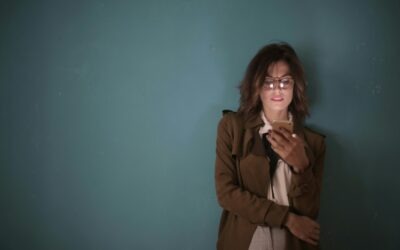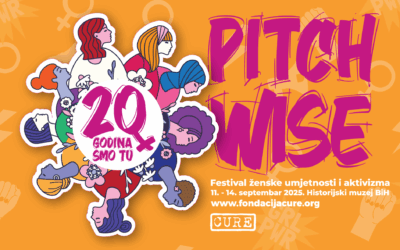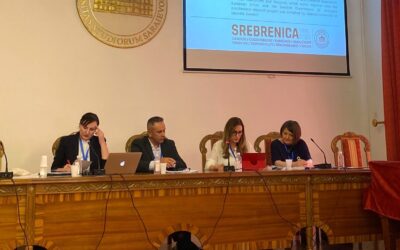When I first got the invitation from Marija to attend PitchWise 2013 in Sarajevo I sat for 10 minutes starring at my screen. I had millions of thoughts in my head, which included of course issuing the visa, taking days off from work, but what topped my thoughts was how come I still feel this pain when I hear or read the name of the city.
Back in the 1990’s when I was an undergraduate student in Cairo University, the war in what is known then as Yugoslavia was one of the preferable topics for our professors to discuss. I remembered the endless discussions, the papers and the exams but mostly the pain.
What we were discussing was WAR, people dying, tortured and raped. The fear that thousands of women lived in and faced was scary for me. In a war, you are a killing machine or a victim nothing in between and either this or that you seize to be a human and your instinct to survive suppress any other feelings.
So this is what Sarajevo meant to me, I know that was 20 years ago and things changed, but I am also sure that war will always stay in the minds of generations to come.
The invitation came through CURE foundation to me and my friend Dina, who was more excited than me to jump in the next plane. The visa process for Egyptians was amazingly easier than our expectations. The warm welcome of Vedrana from CURE was enough to let us forget about the pain of sitting in the transit area in Istanbul airport for 6 hours.
The hotel was on top of a green hill with an amazing view of the city, and on a green mountain. Hatidža, another member of CURE team was amazed that both Dina and I were jumping like kids for seeing a green mountain. We explained that it is nothing that you see in our country and it is so peaceful.
The meeting which lasted for three days and a half was vibrant. We missed the first day but the two days we attended was full of activities from lectures on Feminist Epistemology to graffiti and art session along film screening. Thanks to the patience of Hatidža and Jasenka who volunteered to translate to us the different discussions, we managed to engage in the discussions around several subjects. It is always amazing to be in my comfort zone where as Vedrana phrased it “The name of our organization is CURE, in our language it means girls but if you pronounce it in the English way, it is OK, CURE is good because we think Feminism could cure the society”.
Workshops took place in different venues not far from each other but still helped us to walk around the city where Hatidža and Stela helped as tour guides. I think I asked 100 of questions about the war, Bosnia before and after it, the feelings, the pain and the loss. Both our interpreters were patient enough to tell us as much details as possible. I could relate to the pain, to the fear and to the destroyed economy, to the stories of big corporations that which bought local business that never survived. It is the same tragedies when violence spread like fire and the scene gets polarized lacking any possibilities of common grounds to negotiate and talk instead of holding weapons and killing. One thing I learnt living through the last two years and a half through days of revolutions in Egypt that life is more powerful that any attempts to kill it. The youth spirit in every session we attended in PitchWise 2013 was a promise of a better life and a better future.
The day of the talk, I was not sure of what to say. Some of the attendees have witnessed the war, so what are we doing here and what we should tell. I started by a brief introduction about Women Living Under Muslim Laws, the solidarity network which I am a board member in and with the several contribution on issues related to violence against women and fighting militarization.
“Gendering the Egyptian Revolution” was the subject of the talk and I should say is not an easy subject; we had to tell the stories of women who fought before the revolution who paved the way to things to happen. We had to explain the different stands that both Dina and I have from State Feminism. I told everyone that I celebrated the small changes while Dina talked about her disappointments. Between the different stories we told, I can see the memories flashing on the eyes of the attendees.
The questions and answers session was a time to reflect more and detail, to narrate stories about “Women in Black” and about women from Palestine as in between the attendees a medicine student from Palestine who studies in the University of Sarajevo was there. The question of “How can we help?” stopped me and put me close to tears. Feminist Solidarity is one of the few things that helped me to survive many pains through the years but to come from Bosnian women; this was overwhelmingly to me. I guess Dina sensed this, so she replied on behalf of both of us and talked about the emails and phone calls that make a difference and about the lessons we should learn from each other to continue to struggle.
I should always be thankful for the CURE as now Sarajevo has better images in my mind, not the city of war but of hope with its green mountain.


